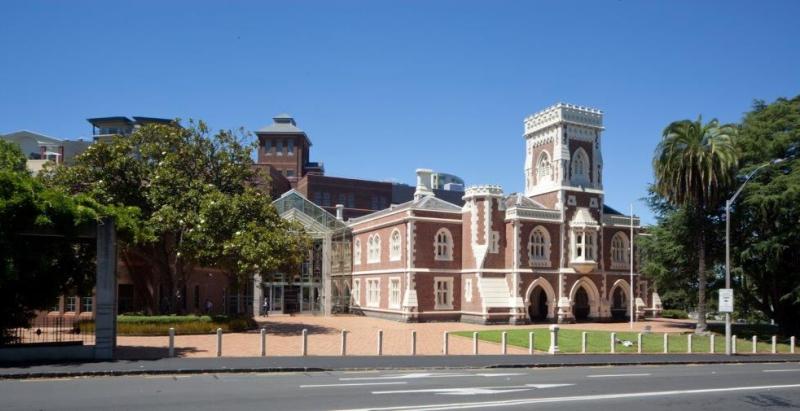
21 Jun 2018
Report from the High Court of New Zealand/Te Kōti Matua o Aotearoa 2017
 The 2017 Report from the High Court has been released by the Hon Justice Geoffrey Venning Chief High Court Judge/ Te Kaiwhakawā Matua.
The 2017 Report from the High Court has been released by the Hon Justice Geoffrey Venning Chief High Court Judge/ Te Kaiwhakawā Matua.
The report covers the period in which Senior Courts Act 2016 came into effect. This underpins the jurisdiction and operation of the High Court. The Act required the publication of various protocols, recusal guidelines, extra-judicial employment and offices, and reports about the number of judgments that are outstanding beyond a reasonable time.
That Act also established a commercial panel for hearing and determining complex commercial proceedings in the High Court. This panel began operation on 1 September 2017.
Key Highlights:
- Judicial Complement: As at 31 December 2017, the judicial complement was unchanged at 39 judges and seven associate judges. Retirements included Fogarty J and Clifford and Gilbert JJ were appointed to the Court of Appeal. New judges included Churchman, Jagose and van Bohemen JJ.
- Judgment Delivery: The Court has set a standard of 90% of civil judgments delivered within three months of the hearing or last submissions. In 2017 the actual result was 88.9%. The Chief High Court Judge has determined that any judgment which is not delivered within six months of the last day of hearing or receipt of the last submission is outstanding beyond a reasonable time unless extenuating circumstances, making a delay beyond six months not unreasonable, apply. The delayed judgments report for the six-month period to 1 September 2017 notes that on 1 September 2017, 13 judgments were outstanding beyond a reasonable time, A further 16 judgments became outstanding, but all those 16 judgments were delivered by 30 September 2017. During the same period from 1 March 2017 to 30 September 2017, the Court delivered 2084 judgments in total.
- Civil jurisdiction: During the year most of the civil appeals arising from the proposed Auckland Unitary Plan issued in 2016 were either heard or discontinued. Nationwide, at year end 26% of active general proceedings arose from the Christchurch earthquake sequence, including both insurance matters and claims of faulty repairs. The Wellington registry is managing approximately 200 applications under the Marine and Coastal Area (Takutai Moana) Act 2011, for a High Court order for recognition of protected customary rights and customary marine title. These applications have affected the clearance rate for originating applications.
- Criminal: There were 130 criminal cases on hand at 31 December 2017 compared to 124 at the same time in 2016. This includes cases awaiting sentence. Only four cases begun prior to the commencement of the Criminal Procedure Act 2011 on 1 July 2013 remain to be heard. The Chief Judges of the High and District Courts established the Protocol in accordance with s 66 of the Criminal Procedure Act. The provisions in the Criminal Procedure Act replaced a paper-heavy process in the Summary Proceedings Act 1957 for determining the court of trial. The number of offences which must be considered for direction as to court of trial by the High Court is reduced.
- Rule Changes: Three significant rules or sets of rules were promulgated during the year. Statements of claim or counterclaim must record the registry name in both te Reo Māori and English. Both forms of the registry name are added to judgments. A registrar may now refer plainly abusive proceeding to a judge before service and, if satisfied the proceeding is an abuse of the process of the court, the judge may strike it out. The Senior Courts (Access to Court Documents) Rules 2017 came into force on 1 September 2017. Access to court documents rules now apply to all the senior courts and apply to access to both civil and criminal court documents. Requests for access to documents by a member of the public will be determined by a judge. The rules provide more specific guidance about how to balance different policy considerations such as fair trial rights, open justice and the protection of confidentiality and privacy interests when assessing requests.
- Electronic Capabilities in Court: the senior courts have implemented the Senior Courts Civil electronic document protocol. The High Court Practice Note on the use of electronic common bundles and electronic casebooks also applies to criminal matters. Audio-visual links (AV links) with circuit courts and prisons are now routinely available. The Ministry of Justice is undertaking two projects which are essential building blocks for electronic filing of documents and access to case papers online.
- Courthouses: The Christchurch High Court commenced business in the new courthouse in 20 November 2017. The historic Dunedin courthouse was re-opened in February 2018 after having been significantly strengthened and refurbished. The Wellington courthouse re-opened on 1 February 2017 after 2½ months of remediation work following the November 2016 Kaikōura earthquake. Property changes to create a single public entrance to the Wellington building are planned for 2018. The changes will facilitate full time security screening.






